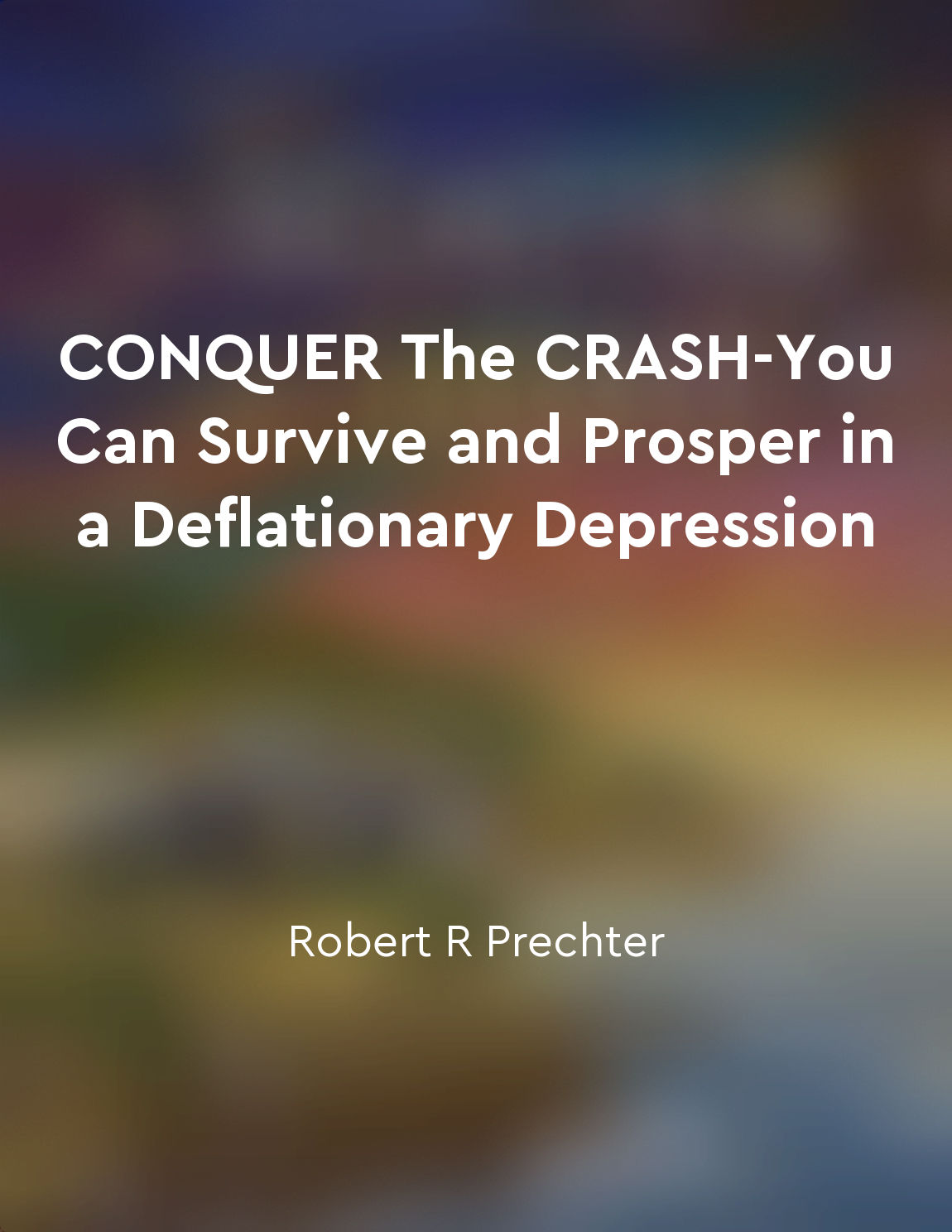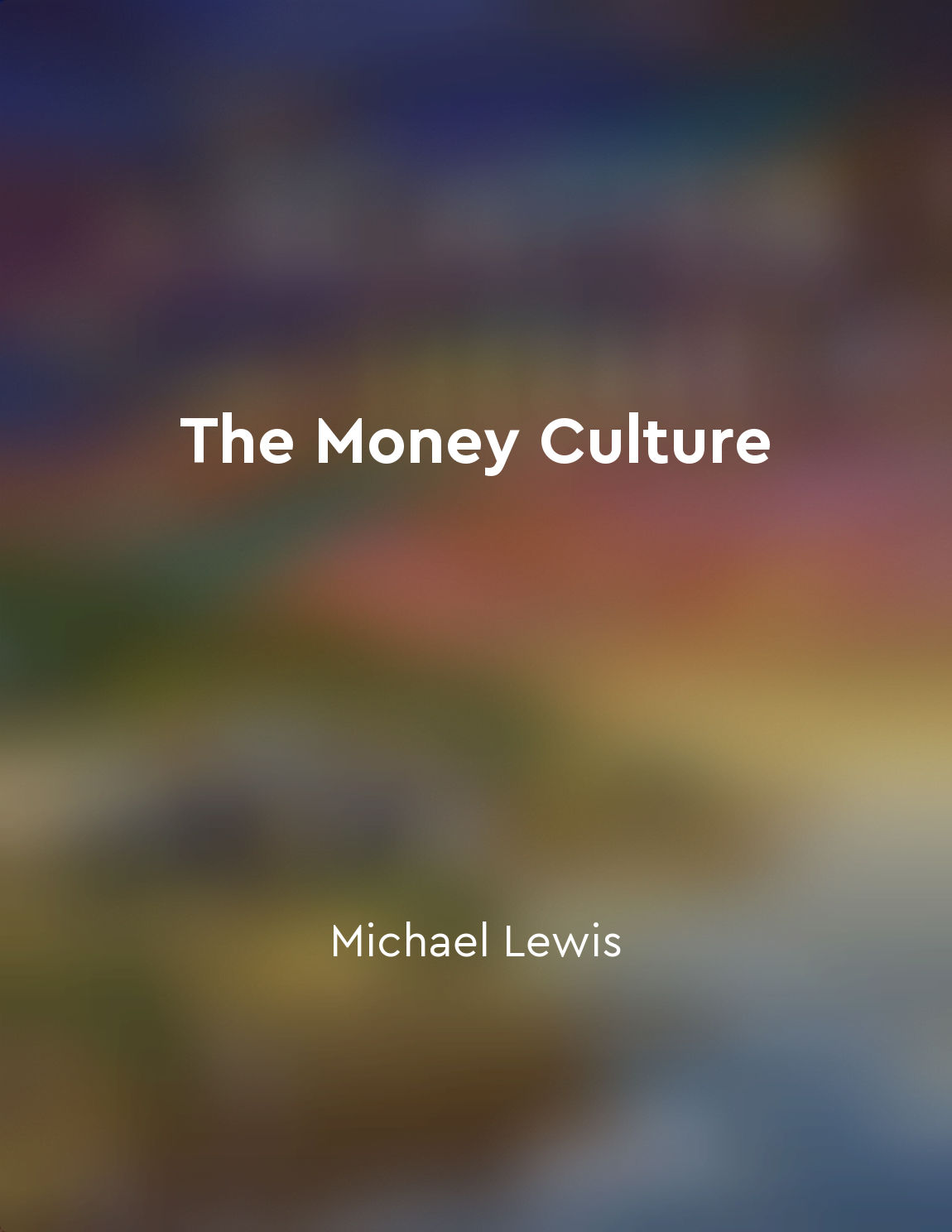Market crashes are inevitable from "summary" of Why Stock Markets Crash by Didier Sornette
Market crashes are inevitable. This might sound like a bold statement, but history has shown us time and time again that this is indeed the case. The notion that markets are efficient and can accurately reflect all available information is flawed. Instead, markets are complex systems that are prone to sudden, unpredictable movements. In my research, I have found that market crashes are not random events, but rather the result of specific processes that occur within the system. These processes can be understood and modeled using concepts from the field of critical phenomena. Just like a sandpile that grows grain by grain until it reaches a critical point and collapses, financial markets can accumulate imbalances until they reach a tipping point and crash. One of the key factors that contribute to market crashes is the presence of positive feedback loops. When prices start to fall, investors panic and sell their assets, causing prices to fall even further. This creates a self-reinforcing cycle that can quickly spiral out of control. In this way, market crashes are not just the result of external shocks or irrational behavior, but are an inherent feature of the system itself. While it is impossible to predict exactly when a market crash will occur, there are certain warning signs that investors can look out for. For example, rapid increases in asset prices, high levels of leverage, and excessive risk-taking are all indicators that the system may be becoming unstable. By paying attention to these signals, investors can better prepare themselves for the inevitable downturns that will come.- Market crashes are a natural consequence of the complex, interconnected nature of financial markets. By understanding the processes that lead to these crashes, we can better prepare ourselves for the inevitable turbulence that lies ahead. The key is to remain vigilant, stay informed, and be prepared to weather the storm when it inevitably arrives.
Similar Posts
Regulatory reforms were implemented
In response to the financial chaos that followed the Crash of 1929, a series of regulatory reforms were introduced. These refor...
Poverty and social unrest on the rise
In recent years, a troubling trend has emerged in society - an increase in poverty and social unrest. This phenomenon is not is...
Stay committed to your investment strategy through market ups and downs
It is crucial to remain steadfast in your investment strategy despite the fluctuations in the market. The temptation to react i...
Be aware of geopolitical risks that can impact investments
One of the most important factors to consider when making investments is the geopolitical landscape. Geopolitical risks can hav...
Warning signs are ignored by the majority
Throughout the narrative, it becomes evident that the warning signs of impending financial disaster were not only present but a...

Embrace opportunities for growth during downturns
During times of economic downturn, many individuals and businesses tend to panic and retract, fearing the uncertainty and chall...

Monetary policy affects the money supply
Monetary policy plays a crucial role in regulating the money supply within an economy. By adjusting interest rates and influenc...
Take advantage of employersponsored retirement plans like 401(k)s
Employersponsored retirement plans like 401(k)s are a valuable tool for building long-term wealth. These plans allow employees ...
Minimize taxes and fees on your investments
When you invest, you want your money to grow as much as possible. One way to make sure this happens is to minimize the taxes an...

Urgent need for reform in money culture
The money culture is a world where the pursuit of profit often trumps ethical considerations. It is a place where greed reigns ...

